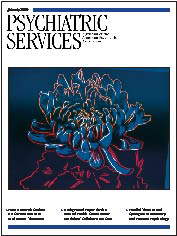Innovations: Alcohol & Drug Abuse: Narcotics on the Net: The Availability of Web Sites Selling Controlled Substances
Abstract
The Internet is not only a vital medium for communication, entertainment, and commerce, but it is also an outlet for illicit drug sales. Although the U.S. Controlled Substances Act regulates access to certain drugs by requiring prescriptions, unique characteristics of the Internet create significant challenges for the enforcement of U.S. drug policies. In the late 1990s "no prescription Web sites" (NPWs) began to emerge, which allow persons to purchase drugs, such as opiates, without a prescription. Given the likely role of NPWs in increasing prescription drug abuse, health care professionals must develop and disseminate strategies for helping patients who are affected by these Web sites.



